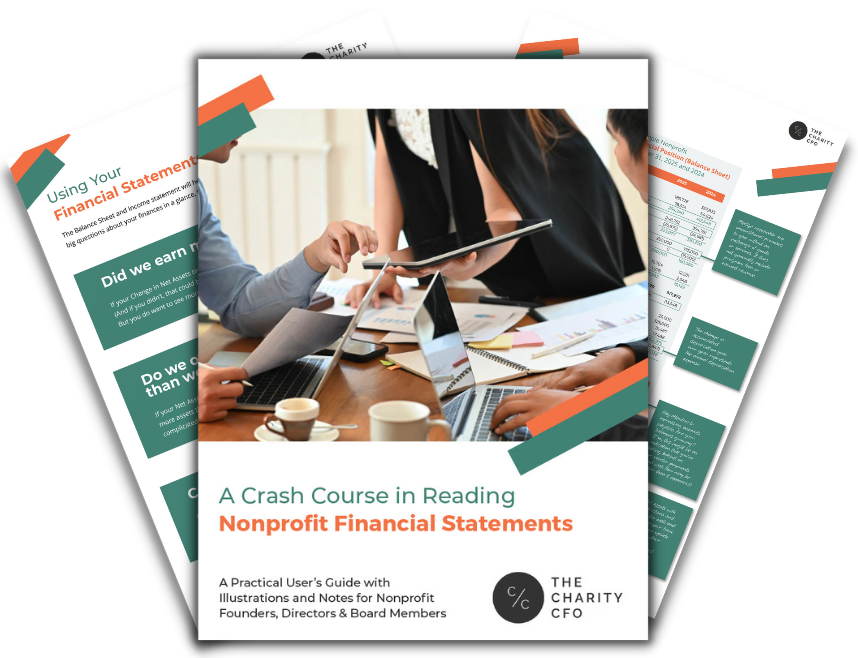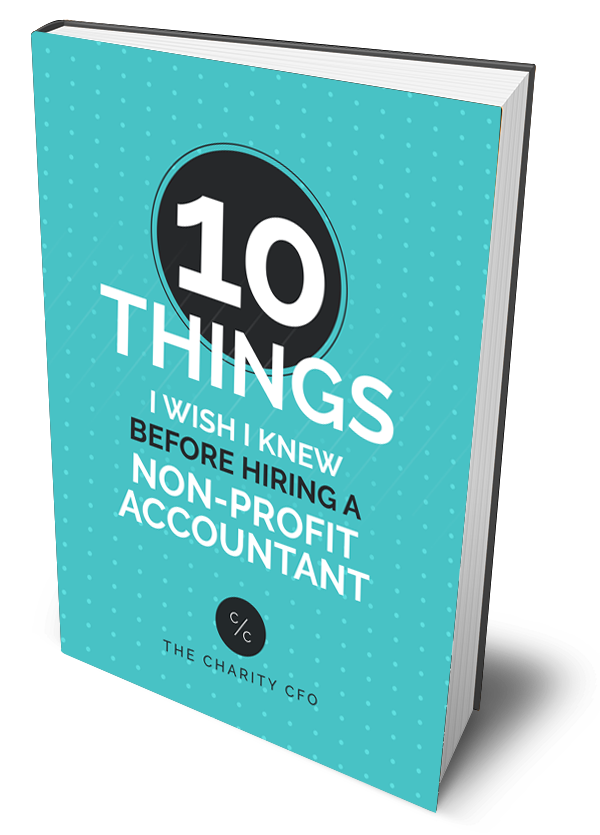By now, you’ve heard about cryptocurrency…
But maybe you’re a bit wary of the technology.
Or you think it’s just another financial bubble.
Or a boiling swamp of high-risk speculation.
And you’re certainly not sure why your nonprofit should care about it.
We don’t want to exaggerate the impact…but trillions of dollars in wealth have been created in digital currency in record time.
And crypto donations to nonprofits grew over 2200% to $300 million over the past 2 years.
Cryptocurrency becomes a bigger force for good in the nonprofit sector year after year. So it’s time to get over your fears and pay attention, before you’re left behind.
In this article, we’ll talk about the top 6 things we think all nonprofits should know about cryptocurrency.
Note: Cryptocurrency is digital currency secured by a technology called a blockchain that records every transaction made involving the currency. Increasingly, you can use it as cash to purchase goods or services Or receive it as a donation. Our goal here is to discuss why cryptocurrency matters for nonprofits, not explain what it is or how it works. So if you don’t already have a basic understanding of how cryptocurrency works, first check out a graphic explainer like this one or a video explanation like this one.
The 6 Things You Need to Know About Cryptocurrency for Nonprofits
1. Crypto donations grew 971% to $300 million in just one year
The global cryptocurrency market cap peaked at over 3 trillion dollars in November 2021. And it is projected to reach nearly $5 trillion by 2030.
In 2021 we started to see some of that wealth spread, with over $300 million in crypto donations to nonprofits and charities. That’s a 971% increase from the $28M donated in 2020. And a 2207% increase in just two years ($13M in 2019).
According to a 2021 study by Gemini, the average crypto donor is younger, wealthier, and more likely to be located in an urban area than the average American.
And in 2020, 45% of cryptocurrency investors donated at least $1,000 to charity, making them among the most charitable investors on the planet.
Early crypto investors are already investing in innovative ways to change human behavior and society. They’re often driven by ideology and support the causes they believe in. Which means that a single investor who aligns with your values could change the trajectory of your organization in a few moments.
If you aren’t accepting crypto donations, you could miss out. And that’s why accpeting cryptocurrency for nonprofits is so critical.
“It’s still pretty early days for crypto philanthropy… but the rate at which it’s accelerating is extreme because now nonprofits are realizing what a big market this is.” – Alex Wilson, co-founder of The Giving Block
2. Cryptocurrency is more than just Bitcoin
Bitcoin gets a lot of press, but there are many more cryptocurrencies for nonprofits that matter.
Bitcoin is considered the first, and all other options are collectively known as altcoins. They vary in technology, features, scalability, privacy, and functionality.
The list of “most valuable” or “most popular” cryptocurrencies changes weekly. But some altcoins, like Ethereum, Tether, Litecoin, and Bitcoin Cash, have proven relatively stable and are becoming more widely adopted.
Bitcoin dominates the space, representing over 40% of all cryptocurrency value. But that means that 60% of the value in cryptocurrency is in coins other than Bitcoin. So it’s important that you don’t focus only on Bitcoin.
Once you start receiving cryptocurrency donations, you may want to consider the risk involved with that specific asset before converting it to cash immediately or holding onto for the long term.
3. Crypto users value anonymity (but the IRS… not so much)
Search #cryptogivingtuesday on Twitter, and you’ll find thousands of tweets about crypto investors who donated millions on Giving Tuesday in 2021.
But many people choose cryptocurrency specifically because they want to remain anonymous. And they want that anonymity to apply to their charitable activities as well.
Some donors choose to maintain anonymity for personal reasons. Others may wish to remain anonymous for more practical reasons (like avoiding your fundraising emails and weekly text-message campaigns). And others may not want the IRS knowing what they’ve been up to.
Donor anonymity makes it difficult for you to cultivate a relationship with your donors, confirm that the money comes from a legal source, and follow up about the use of the funds.
It also makes it challenging for a 501(c)(3) to report the source of donations of over $5,000 on Schedule B, as required by the IRS.
You can require personal data when accepting cryptocurrency donations. Yes, it may eliminate some potential donors, but it may also be legally required. So speak to your legal team and decide what is right for your organization.
4. Donors can use crypto donations to avoid capital gains tax
The IRS classifies cryptocurrency as property, similar to stocks, rather than cash. So, despite it functioning much like money, you won’t see it as “cash” on your Statement of Financial Position.
The property designation also means that donors can receive a tax deduction for the current fair market value of cryptocurrency assets rather than the amount they initially invested.
Here’s an example:
A crypto investor is looking to donate money to a charity. They have $1 million in hyper-appreciated cryptocurrency (they bought it for pennies and it’s now worth $1 million) that they want to donate to a charity they support.
They have two choices:
- Sell the cryptocurrency on the open market, pay $200,000 in capital gains taxes, and then donate the $800,000 remainder to charity. OR…
- Donate full $1 million in cryptocurrency to the charity of their choice and get a tax deduction worth $1 million!
The investor can support a good cause, avoid paying capital gains taxes and get a tax deduction for the full $1 million in market value by giving it to your nonprofit.
And you get a 25% larger donation.
In most cases, an investor won’t donate the total value of their position. Instead, they’d donate a portion of it to charity and use the tax deduction to offset the taxes they owe on the remaining amount.
This tax benefit will create a wave of new donations to nonprofit organizations over the next decade as cryptocurrency investors start to look for ways to reduce their tax liabilities.
5. Cryptocurrency can be as good as cash for nonprofits
Because cryptocurrency is considered property, not cash, you might have three options for what to do with it: convert it to cash immediately, hold indefinitely, or diversify part of the donation.
If you use an intermediary service or a 3rd party processor, you can convert most cryptocurrency donations to cash more or less immediately. So there’s no need for you to hold onto a wide variety of digital assets.
The highly volatile nature of the cryptocurrency market means that holding on to the asset brings significant risk. However, it also has the potential to rise significantly in value and support your cause for years to come.
Your nonprofit should have established policies on how to handle non-cash donations of potentially high-risk assets. So consult with your board members, legal team, and financial team to decide what you want to do with your cryptocurrency donations.
6. How to accept cryptocurrency donations as a nonprofit
There are four ways cryptocurrency for nonprofits donations can be processed: intermediary 501(c)(3), nonprofit crypto processors, crypto exchange, and a wallet.
-
Intermediary 501(c)(3):
The easiest way to accept crypto donations is through another 501(c)(3) organization set up expressly to receive and convert cryptocurrency donations for other nonprofit organizations. Every.org and CryptoforCharity.io are two examples.
PRO TIP: Intermediaries accept the cryptocurrency donation, convert it to cash, handle tax receipts, and then pay you in cash. It’s simple. But it’s not for you if you intend to hold onto the cryptocurrency as an investment.
-
Third-Party Processor
You can work with a 3rd party to process cryptocurrency donations like The Giving Block and Endaoment. They can either help you accept donations and convert them to cash immediately or hold onto it as an investment (using a digital wallet). Processors will also handle the administrative and tax requirements for you.
PRO TIP: Working with a high-profile processor can increase your visibility and put your name in front of donors already giving cryptocurrency, so you’re not having to “sell” this process. They can also help with marketing campaigns to encourage crypto donations.
-
Crypto Exchange
A crypto exchange like BitPay and Coinbase gives you an embeddable cart checkout option you can install directly on your website. However, this option only provides automatic conversion to cash.
PRO TIP: This is an excellent option if you want to pay minimal fees and convert donations to cash immediately but don’t mind dealing with administrative, donor, and tax compliance tasks on your own.
-
Digital Wallet
The most cumbersome of all the options, a digital (or crypto) wallet is where you can receive, send, and store crypto. It’s only recommended for someone with extensive experience in the area, as the technology can be challenging for an already-overworked nonprofit team.
PRO TIP: Donor information is not collected or stored in a wallet, so you’ll need another way to track transactions with donor information. You’ll also need to manage all administrative and tax requirements on your own.
Regardless of which method you use, you’ll need a written policy to accept cryptocurrency gifts and review them regularly.
Want to learn the basics of nonprofit accounting?
If you get frustrated when reading your nonprofit’s financial statements, or just don’t “get it,” we have a free 3-part video series that’ll take the stress and mystery out of nonprofit accounting. (Yes, even if you were bad at math in high school.)
The basics of nonprofit accounting are actually pretty simple. And, once you have the basic concepts down, you’ll feel more confident talking to your board, staff, and community about your organization’s financial wellbeing.
In less than an afternoon, you’ll walk through the basics of nonprofit accounting and essential financial statements—all through the eyes of a CFO.
Click the button below to get free and immediate access.
Get the free masterclass!
Do You Struggle to Make Sense of Your Financial Statements?
Get our FREE GUIDE to nonprofit financial reports, featuring illustrations, annotations, and insights to help you better understand your organization's finances.
Get the free guide!


0 Comments